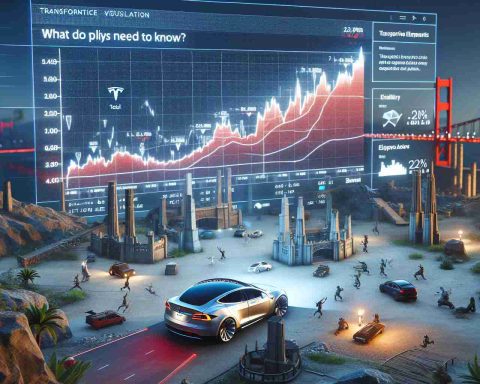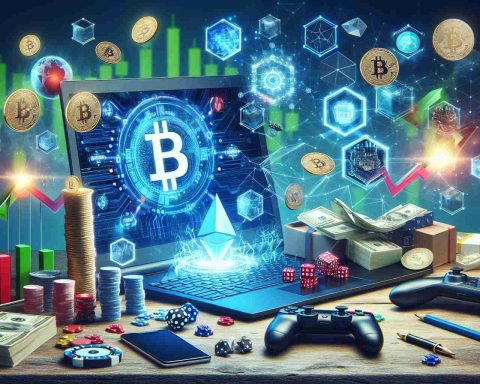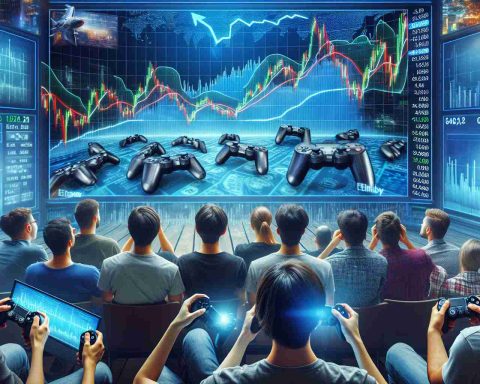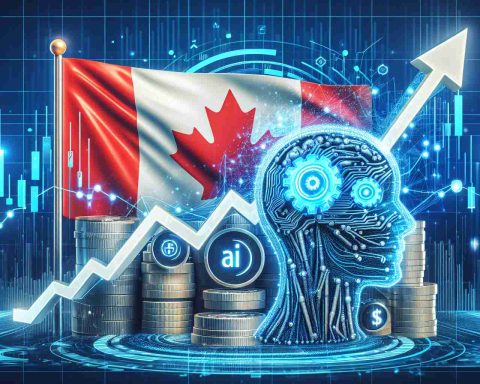In the rapidly evolving world of gaming, virtual economies are becoming as intricate and unpredictable as real-world financial markets. With the advent of new technologies, these digital universes are beginning to mirror the complexities—and risks—of traditional stock markets, suggesting a potential future where a virtual economic crash could have tangible repercussions.
Growing Complexity of In-Game Economies
The rise of blockchain technology, non-fungible tokens (NFTs), and cryptocurrency has transformed in-game currencies and items into valuable assets. Players can now invest real money into digital goods with the hope of future returns, much like traditional stock investments. While this shift offers exciting opportunities for players and developers, it also introduces the volatility and uncertainty inherent in financial markets.
The Risk of Overvaluation
As more players and investors pour money into these virtual assets, there is a growing concern about overvaluation. Similar to a stock market bubble, the perceived value of digital items can skyrocket based on hype and speculation. If demand suddenly declines or technological shifts disrupt the market, prices could plummet, impacting the digital wealth of gamers worldwide.
A New Frontier for Investors
With this potential, regulators and game developers must now consider the implications of a digital market crash. Ensuring stability in these virtual economies is becoming as crucial as in real financial systems. The fusion of gaming and finance represents uncharted territory with immense benefits, but it also poses significant risks that could redefine the future of gaming.
Game Investment Insights: Navigating the Virtual Market Boom
In the digital landscape, the dynamics of in-game economies are increasingly mirroring those of real-world financial systems, presenting both opportunities and challenges for stakeholders.
Innovation in Virtual Economies
Recent advancements in blockchain technology are revolutionizing the trading of digital assets within games. This technology ensures transparency and security in transactions, fostering trust among players and investors. The use of smart contracts for managing in-game transactions not only enhances efficiency but also potentially reduces cheating and fraud, providing a more secure environment for gamers to trade their assets.
Market Trends and Predictions
The integration of cryptocurrency and NFTs into gaming is not just a passing trend. Analysts predict that by 2030, the gaming industry will see an even greater fusion of financial elements, with games potentially becoming platforms for real-life economic activities. This trend could lead to professionalization within virtual economies, where players might earn a living solely through trading and investing in digital assets.
Regulatory Considerations
As digital assets gain tangible value, the call for regulatory oversight grows louder. Governments and international bodies are beginning to discuss frameworks to govern these burgeoning markets. The aim is to protect users from potential financial risks while supporting innovation in the industry. Developers are encouraged to work alongside regulators to create fair and sustainable economic models within games.
Sustainability and Environmental Concerns
One of the significant talking points is the environmental impact of blockchain technology, particularly the energy consumption of cryptocurrency mining. As the gaming world becomes more intertwined with such technologies, developers are exploring more sustainable methods, such as transitioning to less energy-intensive consensus mechanisms like Proof of Stake (PoS).
Opportunities and Risks for Investors
For investors, understanding the nuances of virtual economies can provide lucrative opportunities. However, the market is fraught with risks reminiscent of the traditional markets, including speculation and volatility. Educating investors about the intricacies and potential pitfalls is essential for fostering a stable virtual marketplace.
Comparison with Traditional Markets
While virtual economies are still nascent compared to traditional financial markets, their rapid growth highlights the need for sophisticated analytical tools and strategies. Investors and developers may benefit from adopting financial modeling techniques used in conventional markets to better predict and manage volatility.
Conclusion
The fusion of gaming and finance presents a frontier rich with possibilities, yet it demands careful navigation. As this digital realm continues to expand, understanding its complexities and potential impact is critical for players, developers, and investors alike.
For more information about the latest trends in gaming and finance, visit Forbes.



















